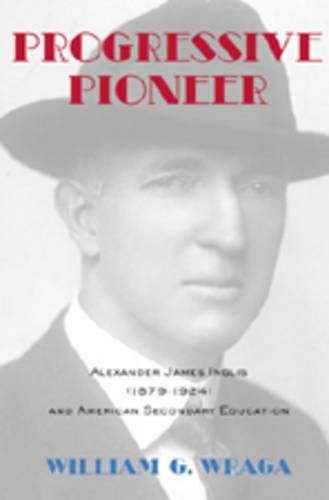Readings Newsletter
Become a Readings Member to make your shopping experience even easier.
Sign in or sign up for free!
You’re not far away from qualifying for FREE standard shipping within Australia
You’ve qualified for FREE standard shipping within Australia
The cart is loading…






Alexander James Inglis’s (1879-1924) transformation from an academic traditionalist devoted to Latin pedagogy to an influential progressive-experimentalist and advocate of the comprehensive high school has received insufficient attention from educational and curriculum historians. Inglis’s career manifests important characteristics of the progressive era in American history. As an attempt to generate organizing principles upon which to construct a new, responsive social institution, his book, Principles of Secondary Education, stands as a quintessential manifestation of progressive values. This fine-grained profile of Inglis’s work reveals nuances in the historic record that are otherwise obscured by high-level historical interpretations. An assessment of the utility of these interpretations for explaining Inglis’s career leads to a discussion of the implications of the record of Inglis’s work for understanding the progressive period and its prevailing interpretations, as well as to a consideration of the role of biography in historical research.
$9.00 standard shipping within Australia
FREE standard shipping within Australia for orders over $100.00
Express & International shipping calculated at checkout
Alexander James Inglis’s (1879-1924) transformation from an academic traditionalist devoted to Latin pedagogy to an influential progressive-experimentalist and advocate of the comprehensive high school has received insufficient attention from educational and curriculum historians. Inglis’s career manifests important characteristics of the progressive era in American history. As an attempt to generate organizing principles upon which to construct a new, responsive social institution, his book, Principles of Secondary Education, stands as a quintessential manifestation of progressive values. This fine-grained profile of Inglis’s work reveals nuances in the historic record that are otherwise obscured by high-level historical interpretations. An assessment of the utility of these interpretations for explaining Inglis’s career leads to a discussion of the implications of the record of Inglis’s work for understanding the progressive period and its prevailing interpretations, as well as to a consideration of the role of biography in historical research.